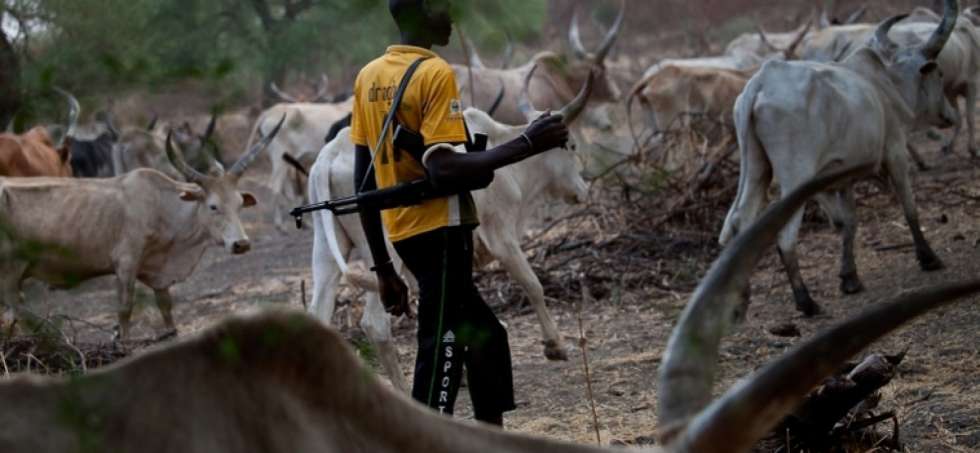
Gun bearing Fulani herdsmen on the prowl in parts of Nigeria displacing travelers and farmers in farmlands with violence
Following Tuesday’s statement by the Minister of Livestock Development, Mallam Idi Mukhtar Maiha, that Nigeria currently has 273 gazetted grazing reserves covering over 4.5 million hectares, and the Federal Government is collaborating with state governments to revitalise and equip these reserves to support pastoralists and livestock operators, many Nigerians from Southern states have started asking questions.
For the fear of gun-wielding Fulani Jihadist/terrorists who have infiltrated the country from the Sahel region nations Senegal, Gambia, Mali and other desert countries, there has been disquiet across South West, East and South regions or better put, the southern half of the nation over which constitution that truly recognized the so called gazetted reserves.
Besides, all southerners and their states have made it clear that they do not have lands or forests for reserves, but whoever that want to do ranching business should follow due business development processes.

Amongst the questions posed to the government included which constitution recognized the reserves, who gazetted the reserves, did local communities know about the reserves or their revitalization, why must government fund private businesses?
Nigerians are also querying why the Ministry is no more talking about ranching which remains the global best practices in livestock Farming.
Only recently, there had been a viral new saying the government has started enforcing outright ban on open grazing across Nigeria, but the Minister has denied the news, saying the publications as misleading and “not reflective of the government’s current policy direction.”
According to the Minister, the administration is not enforcing an outright ban but is instead implementing a gradual, well-coordinated transition from open grazing to modern ranching systems across the country.
The clarification was contained in a statement signed by Oghenekevwe Uchechukwu, Head of Press & Public Relations in the ministry. Mukhtar explained that Nigeria currently has 273 gazetted grazing reserves covering over 4.5 million hectares, and the Federal Government is collaborating with state governments to revitalise and equip these reserves to support pastoralists and livestock operators.
He stressed that the transition plan prioritises sustainable alternatives over abrupt enforcement measures. The goal, he said, is to boost productivity, reduce farmer–herder conflicts, and build an efficient, modern livestock ecosystem.
“Pastoralists, like every other economic group, require a structured business environment,” the Minister noted. “The grazing reserves provided by law are meant to serve as business premises for all livestock activities. Our responsibility is to upgrade these reserves and facilitate their proper utilisation.”
The Ministry urged Nigerians to ignore misleading publications and rely on verified government communication channels for accurate information on livestock development reforms.
The clarification reaffirms the government’s commitment to a phased and inclusive transition strategy, designed to modernise the livestock sector without destabilising communities that rely on traditional pastoralism.














You must be logged in to post a comment.